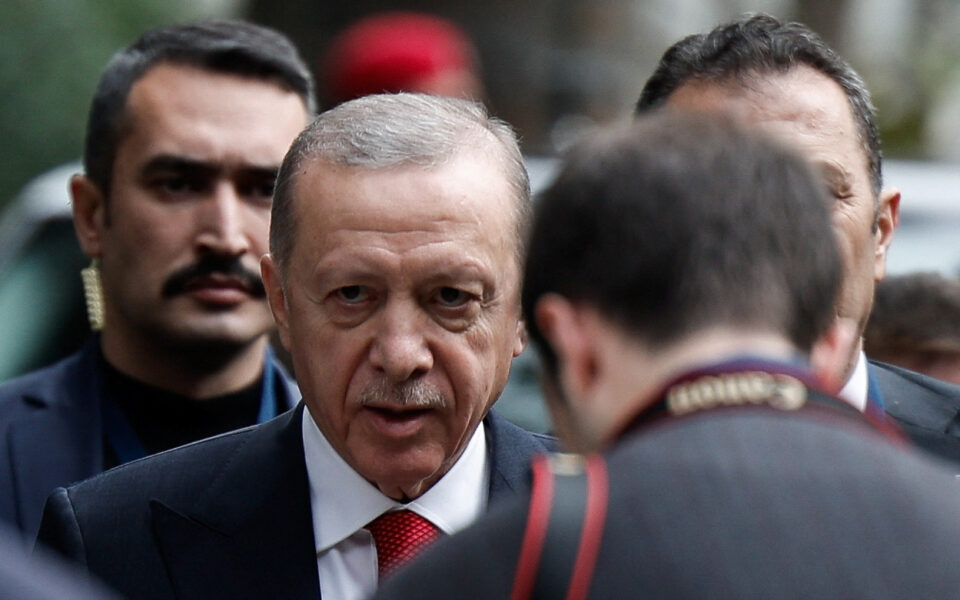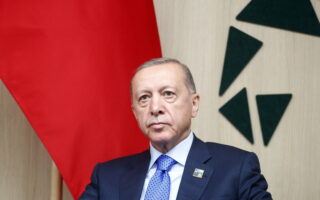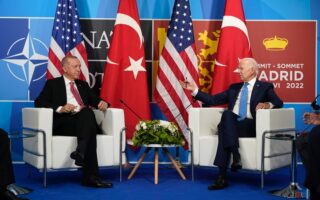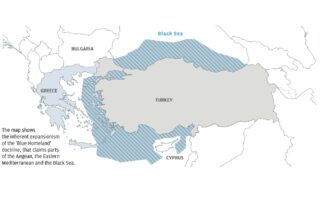A genuine transformation?

One year ago, if an analyst predicted that Turkish President Recep Tayyip Erdogan would have signed a document committing “to refrain from any statement, initiative or act likely to undermine [the Athens Declaration on Friendly Relations and Good-Neighborliness] or endanger the maintenance of peace and stability in [the] region” and to “resolve any dispute between [Greece and Turkey] in an amicable manner through direct consultations between them or through any other means as provided for in the United Nations Charter,” they would have been laughed out of the room.
Maybe we should have known better. Erdogan has spent two decades shape-shifting on the global stage. His pivots – from key regional ally for the US to a “frenemy”; from shooting down a Russian jet to becoming the NATO ally closest to Putin; from rapprochement with Israel to top supporter of Hamas; from the Armenian Protocols to facilitating Azerbaijan’s ethnic cleansing of Artsakh – have been both dizzying and the most consistent feature of his foreign policy.
How did we go from an Erdogan who declared that PM Mitsotakis “no longer exists” for him to one saying “My friend Kyriakos”? The reasons are multiple and complex, but to proceed from de-escalation to detente to rapprochement, the Greek public must understand how the US factored into this transformation.
1. America woke up to who Erdogan is
There is a ridiculous myth that persists in some circles in Greece that Erdogan is a canny and effective statesman who always gets what he wants from the US. The reality is that his relations with Washington have revealed why he never realized his dream of playing professional soccer – he constantly scores own goals.
Erdogan was in position – especially as the American public gave Washington (specifically Presidents Obama and Trump) the directive to end the “forever wars” in the Middle East – to be the ally and partner the US overwhelmingly relied on the region.
There is substantial proof that Erdogan does not deserve the credit that many give him. He went from being feted by The New York Times and Washington Post to being featured on The Atlantic’s “The Bad Guys are Winning” cover story (along with Putin, Xi, Chavez and Lukashenko). Once considered the great Islamic democratic reformer, Erdogan was featured in the late Madeleine Albright’s book “Fascism: A Warning.”
This observation by Jeffrey Goldberg – during the last major interview of the Obama presidency – captures Erdogan’s “fall from grace” in Washington: “Early on, Obama saw Recep Tayyip Erdogan, the president of Turkey, as the sort of moderate Muslim leader who would bridge the divide between East and West – but Obama now considers him a failure and an authoritarian, one who refuses to use his enormous army to bring stability to Syria.”
Erdogan’s failures as a partner against ISIS and against Russia, his growing authoritarianism at home, and his exporting of transnational repression to American soil embarrassed nearly every figure who had vouched for him.
There is substantial proof that Erdogan does not deserve the credit that many give him
Erdogan may have perfected domestic repression and authoritarianism, but when it comes to statesmanship he is not merely overrated, he is bad.
2. Shifts in US policy
Another oversimplistic view that makes its rounds in Greece is the “Congress vs State Department” narrative on US Turkey policy.
It is true that Congress led the charge on policy shifts. Even as President Obama was hosting Erdogan at the White House, Senator Bob Menendez and the co-chairs of the newly formed Congressional Hellenic Israel Alliance caucus – Gus Bilirakis and Ted Deutch – kept nudging Eastern Mediterranean policy towards the Greece-Cyprus-Israel trilateral. When President Trump hosted Erdogan and even invited a number of Republican senators to the White House to come to some understanding that would allow the sale of F-35s to Turkey, Congress legislated Turkey’s ejection from the F-35 program and forced Secretary Pompeo’s hand in imposing CAATSA sanctions.
Congress went first, but it did not proceed alone. To discuss the shifts in US policy and not give credit to the tenures of former assistant secretary Wess Mitchell and Ambassador Geoffrey Pyatt, to the progress still being made by ambassadors George Tsunis and Julie Fisher, and to the unheralded contributions of a growing cadre of deputy assistant secretaries of state, office directors and desk officers responsible for Greece and Cyprus would be intellectually dishonest. Perhaps the most consequential shift for the long term is that of the foreign policy establishment. To have think-tankers (and one-time US government officials) from across the political spectrum at Council on Foreign Relations, the Foundation for Defense of Democracies, the American Enterprise Institute, the Center for American Progress and elsewhere go from Turkey cheerleaders to strident critics of Ankara is beyond significant. The fact that they also consider the deepening US-Greece partnership as a major part of a strategy of to decoupling the US from Turkey is even more important.
Winston Churchill once proclaimed, “You can always count on the Americans to do the right thing – after they’ve tried everything else.” When it comes to the Eastern Mediterranean and Turkey, Americans have nearly run out of things to try and they have decided to proceed with trying the “right thing.”
Erdogan still needs much from the United States: F-16 upgrades, commercial parts for his drone industry, continued support for World Bank assistance. The greatest success of the combined efforts of the Mitsotakis government, its embassy in Washington (especially under the stewardship of then Ambassador and now Deputy Foreign Minister Alexandra Papadopoulou) and the Greek American community was to ensure that Ankara’s relations with Washington pass in some degree through Athens. To optimize this opportunity, the leverage that the Hellenic world has built up to this point must not be relinquished but enhanced. After Erdogan’s visit, some may opt to quote President Reagan’s “trust but verify” mantra. Given Greece’s economic progress, political stability, and diplomatic relationships and the Greek American community’s ties to political and thought leaders in a presidential election year we should invoke another US president, Teddy Roosevelt: “Speak softly, but carry a big stick.”
Endy Zemenides is the executive director of the Hellenic American Leadership Council (HALC).





